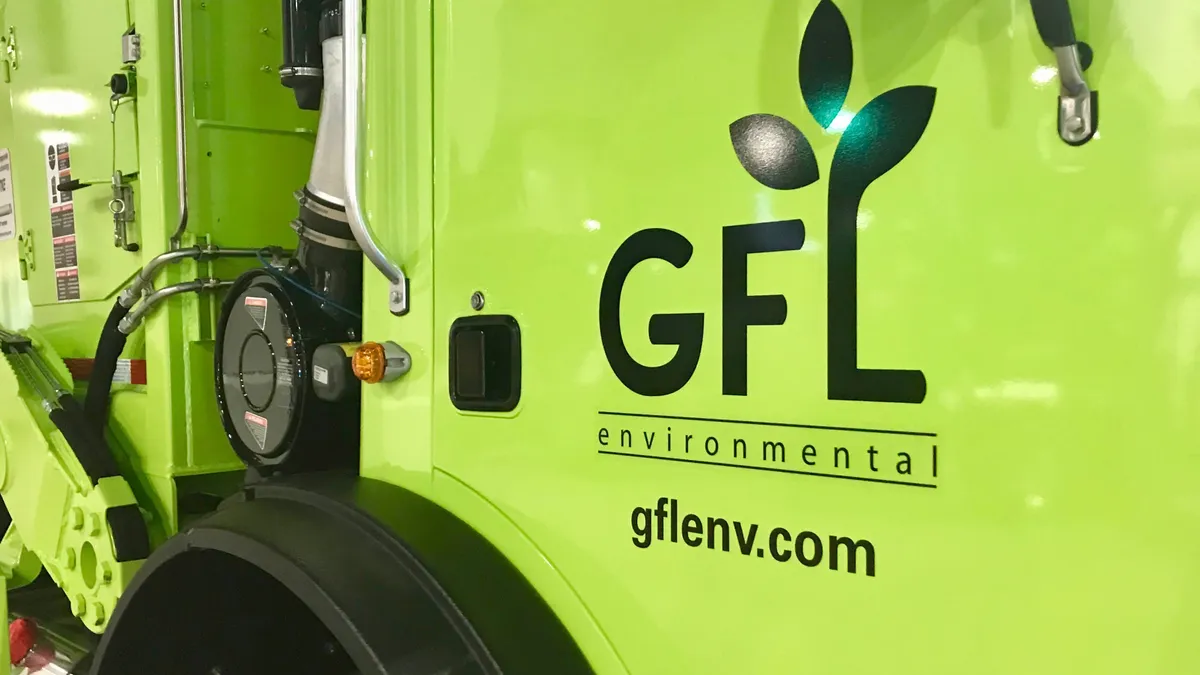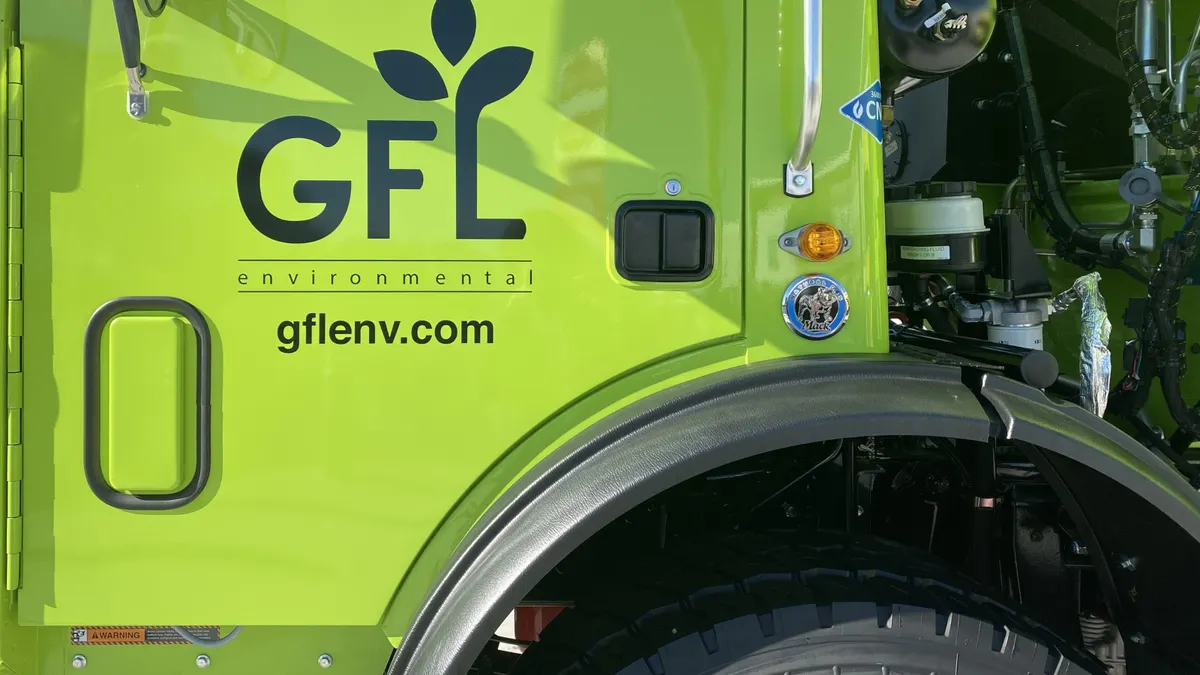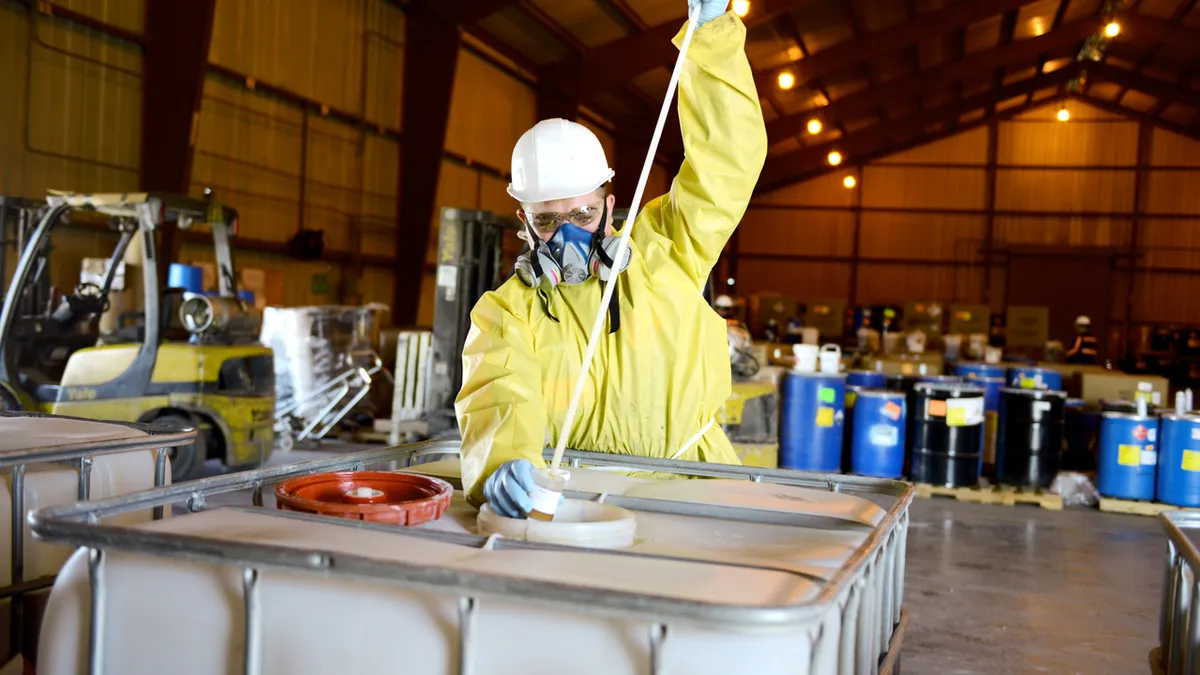All financial information from GFL is in Canadian dollars.
GFL Environmental expects to run an auction for its environmental services business sometime after Labor Day, CEO and founder Patrick Dovigi said on the company’s earnings call Thursday. The announcement marks a narrowing of paths forward for the company as rumors of a sale have emerged in recent weeks.
Dovigi shut down speculation that GFL would entertain a deal for the whole company, citing conversations with GFL’s board to reach this decision. He said he was motivated in part by GFL’s current stock price, which he believes is trading below the company’s actual value due to its growth plans.
“Given the amount of inbound interest that we've seen from investors as well as strategics, where we landed is that we need to run an auction to sell this,” Dovigi said. “We’ve been taking the steps over the last couple of months to prepare for that.”
GFL’s environmental services division, composed primarily of liquid waste assets, generated $478.4 million in revenue in the second quarter of this year, an increase of about 8% year over year. The company’s solid waste business generated $1.58 billion in revenue, up 5.4% year over year. That’s compared to GFL’s $2.06 billion in revenue as a whole for the second quarter, up 11% year over year.
Executives expect the multiple for a potential sale of the environmental services business could be in the “mid-teens,” putting the total transaction cost in the billions. Dovigi cited several recent sales as industry precedents, including WM’s pending $7.2 billion deal for Stericycle, Republic Services’ $2.2 billion purchase of US Ecology and Reworld’s (then Covanta) acquisition of Circon, estimated to be worth about $600 million.
Through such a deal, GFL would be able to significantly lower its debt leverage, something analysts have pressured the company to do for years. CFO Luke Pelosi said a sale of the environmental services business would bring its debt leverage ratio to roughly 3x, more closely in line with industry peers.
The company would plow a portion of the proceeds from the sale into share buybacks. Dovigi, the company’s largest shareholder, said that could claw back 12% to 15% of total shares.
“In my view, the current valuation does not make sense,” Dovigi said. “With the current disconnect in valuation, we are buyers of GFL, not sellers.”
GFL has achieved a substantial amount of growth in the U.S. through acquisitions since entering the market in 2016, some of which has added to its environmental services portfolio. In 2018, when the company was still private, it acquired Waste Industries for more than $2.8 billion. After going public, the company acquired WCA Waste for $1.2 billion and Advanced Disposal Services assets for roughly $863 million.
GFL’s environmental services segment was created when the company spun out its infrastructure services into Green Infrastructure Partners in 2022. Dovigi remained chairman of GIP, which is private. During that reorganization, GFL combined its existing soil remediation business and liquid waste business to become the current environmental services division.
That business segment does about 80% of its business in Canada and 20% in the United States, Dovigi said on the earnings call Thursday. He said there was a chance GFL could hold onto the soil remediation business in the event of a sale, but he was looking to sell the division as a discrete unit. He said at this time, no other major assets are on the table for a sale.
This would bring an end to GFL’s multiyear campaign to reduce leverage via divestment. Last year, it sold hundreds of millions of dollars in assets to WM, Republic Services and Casella Waste Services. It also completed a divestment of solid waste assets in Michigan to Priority Waste in May. That transaction lowered the company’s solid waste volumes in the second quarter. Executives said that volume loss was not a concern, saying the Michigan assets no longer provided adequate returns.
Dovigi said he’s hoping that any potential deal for the environmental services business would close by the end of the calendar year. He and Pelosi said they expected to remain quiet on M&A through the remainder of 2024 after spending about $500 million in the first half of the year, but activity would pick back up again in 2025. For that year, executives said M&A spending could reach upward of $1 billion without a sale of the environmental services business, or more if a transaction closes.
“If we did something with the [environmental services] business, that would give you ultimate flexibility to do whatever you want,” Dovigi said.
The company’s underlying business performed ahead of expectations in the second quarter, leading GFL to raise its full-year guidance slightly. The company now expects to increase its adjusted earnings before income, taxes, depreciation and amortization margin by 170 basis points, which is the highest level of growth among its peers for the year, Jefferies analyst Stephanie Moore said on the call. Pelosi attributed that expansion to a better than anticipated spread between pricing and costs, rising synergies between assets in overlapping markets and other internal mechanisms.
The company increased its full-year adjusted EBITDA guidance by approximately $30 million and is now targeting a range of $2.24 billion to $2.25 billion.



















